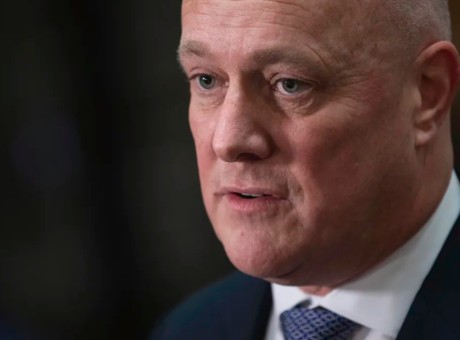A new bottom line for business - and our local community

Scouring the internet, I discovered a large bank of lifehacks on how to love the job you hate. Top tips included ‘bring snacks for your co-workers’ or ‘start a gratitude journal’, which to me, sounds like a crock of you know what.
There is widespread acceptance and apathy in certain types of workplace. I’m interested to know, in Queenstown, is a job just a job, and how can a workplace improve people’s lives within a community? People gravitate to Queenstown for what they can do outside of work, but as the town grows so too do people’s expectations of their work-life balance.
What makes a workplace a great place to work?
Well, good money, sure, that’s true. It’s common sense that it would also be a workplace that values your skillset, and allows you to contribute to the overall good of that workplace.
Frankly, it sucks when we are only dragging our butt to work for money alone and most of us have been there at some point!
If we’re valued financially and personally, this is a good start, but what does it look like beyond this? It would surely be a place that stands for something beyond making profit to its owner(s) and shareholders, a company or organisation that at its core, values its community. You likely feel connected to your work if you have a:
career, community and cause.(1)
Is there a pathway to follow, a culture to belong to, and a reason beyond money to be there? In leading businesses, these three motivators would link to a compelling purpose of the business beyond its profit margin. That is, what can business do for you and your community?

In the business plan of the more progressive company, people and the planet are considered bottom-line measures, alongside profit, and are crucial to its success; thus, these businesses add value to communities and their host environment. Sherwood Community Hotel would be a great example of this, proving that leading with core values can still be profitable, whilst at the same time creating a value-add to its customers, staff and community.

It turns out that focusing on a higher purpose can bring in higher profit
In Queenstown, job opportunities are heavily skewed towards hospitality and retail, well known for their limited career pathways. Yet, when a business can offer a culture that gives added value to its staff and the wider community, there is greater retention of staff.
We know there are flaws in the market economy, a model that is extractive because it mandates the maximisation of money. We know that in Queenstown, as with many tourism destinations, business can extract from the community’s overall wellbeing, by profiteering from the environmental capital of the place and exporting that wealth elsewhere (and in the hands of a few).
We know that trickle down economics is not working; the wealth of a few is not trickling down to the rest.
Not everyone gets to own a private jet! Just one or two, no names mentioned!
So can businesses here help to shape the wellbeing of our community? Yes and they do - sometimes. Several Queenstown businesses support the community in a number of ways, through community initiatives, through donations to agencies, and through providing goods and services that create a localised supply chain and local employment.
At a national level Treasury and Statistics NZ are now less about cash and debt management, and more about demonstrating wellbeing in our metrics. So, in next year's budget the Minister of Finance will be required to report on our wellbeing, not just our economic through-put.

Bill Moran - a shift of focus from Treasury towards social values
"We want New Zealand to be the first place in the world where our budget is not presented simply under the umbrella of pure economic measures, and often inadequate ones at that, but one that demonstrates the overall wellbeing of our country and its people" said Prime Minister Jacinda Ardern earlier this year when referencing Treasury’s current work to establish a "living standards framework" (2)
I spoke with Bill Moran, ex-Chief Operating Officer of Treasury and now a local Queenstown resident who explains, "The Treasury's living standard framework could be applied in a local context to measure increases and decreases in the quality of life of people in the district, now and in the future."
"If this were the case every significant decision that the QLDC makes would need to identify the net impact on the quality of life of residents - and the basis of trade-offs against an agreed baseline of values for growth, equity, social connection, culture, and natural resources."
"Think of it like a see-saw that is in balance - does a decision tip it one way or another - and if it reduces quality of life, is that a trade-off the community would be comfortable with. It makes the sacrifices transparent and real."
With a top down approach from government, can business and our community also help drive a bottom-up approach?
With some experience as a small business owner in Queenstown, I understand the challenges of staffing, of high rental prices and creating and maintaining customer demand.
This isn’t a discussion of whether a business should or shouldn’t have a higher purpose, more a recognition that consumer choice is driving greater corporate responsibility and how that story fits with changing societal values in New Zealand. If you’re interested in how different societies are measuring wellbeing check out OECD How's Life? 2017(4)
(2) https://treasury.govt.nz/sites/default/files/2017-12/improving-economic-policy-nov17.pdf
(4) OECD (2017), How's Life? 2017: Measuring Well-being, OECD Publishing, Paris, https://doi.org/10.1787/how_life-2017-en.

Esther Whitehead, Crux contributor and long-term Queenstown local, isn't afraid to tackle big issues like mental health and poverty in her articles. As managing trustee of the Dyslexia Foundation of New Zealand, she is a strong advocate for equity in education. Locally, she is the founder of the Sustainable Queenstown Charitable Trust, which inspires change through community engagement and provide environmental solutions to businesses.

























